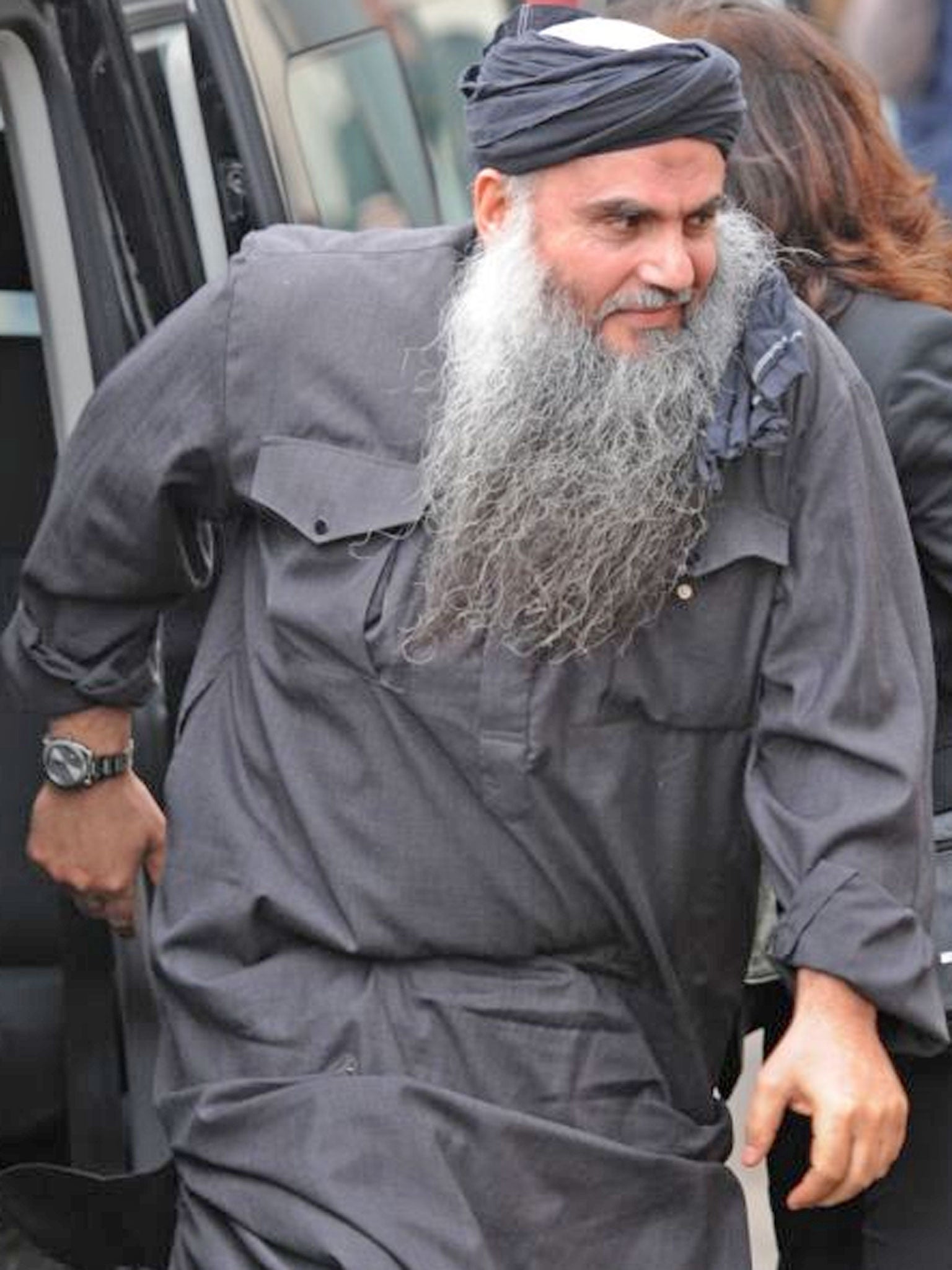Family of radical preacher Abu Qatada wins injunction preventing protests outside their home

The family of radical preacher Abu Qatada has won an injunction preventing protesters from demonstrating outside their home.
His wife and five children were granted an "anti-harassment" order by a High Court judge in London.
Mr Justice Silber also granted them an injunction against various protest groups which is aimed at preventing the misuse of private information.
The judge stressed that his decision did not prevent organisations from protesting against Qatada, provided demonstrations take place more than 500 metres from the London house where they are living.
He said evidence showed that the claimants, including two children under the age of 16, "have suffered extreme distress and upset" by the actions of demonstrators outside their address.
The judge pointed out that Qatada, whose real name is Omar Othman, was not a party to the proceedings.
He emphasised that the case was not concerned with whether "Omar Othman should still be in this country or whether he should be in prison in this country" and was also not concerned with whether he or his family "should be provided with a house financed by the United Kingdom taxpayers".
It was accepted "that it is perfectly legitimate" for there to be protests about his presence in the country and about the house provided to his family.
The injunctions granted today continued earlier orders made by another High Court judge earlier this month.
Home Secretary Theresa May's appeal against a decision to allow Qatada to stay in the UK is due to be heard on March 11.
Three Court of Appeal judges will hear the challenge, which follows a ruling by the Special Immigration Appeals Commission (Siac) that Qatada should not be deported to Jordan, where he was convicted of terror charges in his absence in 1999.
The court action for injunctions was brought against a number of groups, including English National Resistance, Britain First and the English Defence League, as well as against "persons unknown who are intending to assemble outside the home" of the claimants.
Mr Justice Silber said the family did not seek to prevent demonstrations more than 500m from the house.
Such protests directly outside had "terrified" the family, particularly the younger children.
The judge said he accepted the evidence presented on their behalf that, while demonstrations were taking place, they were "effectively prisoners in their own home".
What had been shown by the attitude of the defendants "is that they aim to cause as much misery, not only to Omar Othman, but also to his family".
There was "powerful evidence" from the claimants of weekly demonstrations "with much shouting of abuse" such as "Abu Qatada off our streets", "All Muslims are terrorists" and "Just murder him" - with chanting and shouting lasting for up to six hours.
The judge said the defendants constituted a collection of groups "hostile" to Qatada.
In opposing the injunctions, they argued that the orders would interfere with their rights under the European Convention on Human rights - in relation to freedom of thought, expression, and of assembly and association.
Rejecting their case, the judge pointed out that each of those rights "is qualified in the sense that they do not apply in certain circumstances such as where they interfere with the rights of others".
As well as the "anti-harassment" order, he granted a second injunction restraining the defendants from communicating or disclosing personal matters relating to the wife and children, such as their address, names, names of schools, and also images of them.
Their case was that if the defendants were allowed to communicate such information it was likely to result in further harassment.
A previous court order already prohibited the release of Qatada's address into the public domain.
Last year, Siac judges ruled that evidence from Qatada's former co-defendants, Abu Hawsher and Al-Hamasher, said to have been obtained by torture, could be used against him in a retrial.
They said: "The Secretary of State has not satisfied us that, on a retrial, there is no real risk that the impugned statements of Abu Hawsher and Al-Hamasher would be admitted probatively against the appellant."
Mrs May immediately pledged to appeal and told the Commons that Jordan had given assurances about its legal processes.
She described Qatada as "a dangerous man, a suspected terrorist, who is accused of serious crime in his home country of Jordan".
Qatada was granted bail following the ruling and released from HMP Long Lartin.
He has fought deportation for more than a decade.
PA
Subscribe to Independent Premium to bookmark this article
Want to bookmark your favourite articles and stories to read or reference later? Start your Independent Premium subscription today.

Join our commenting forum
Join thought-provoking conversations, follow other Independent readers and see their replies